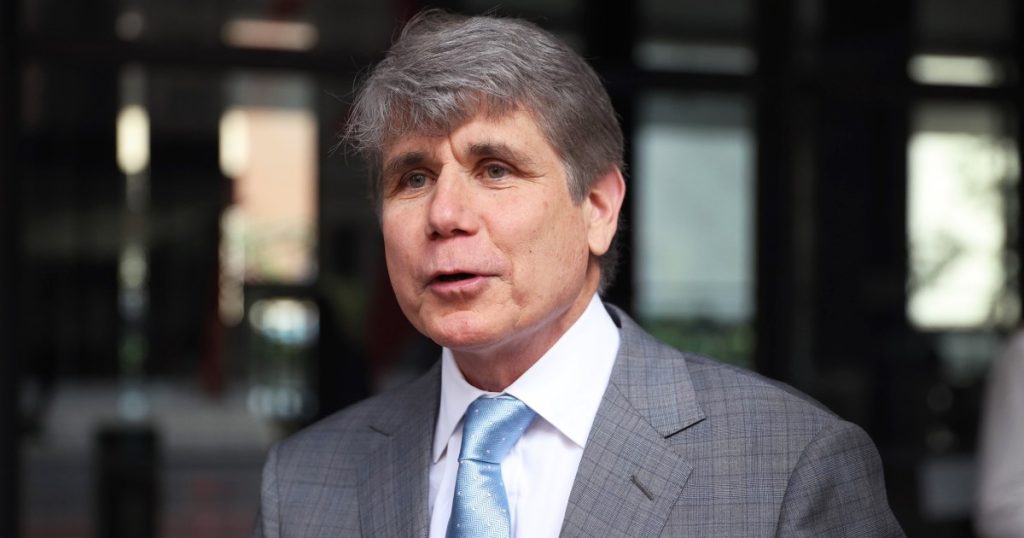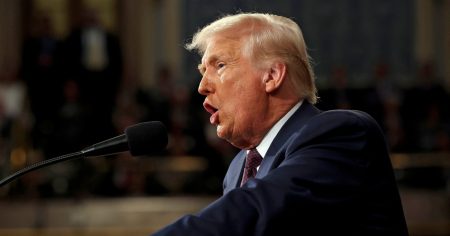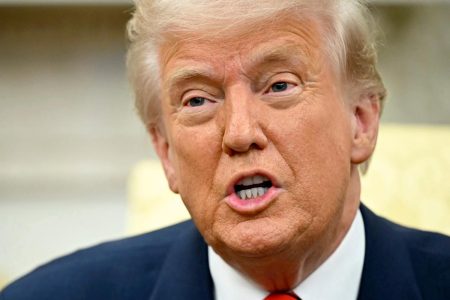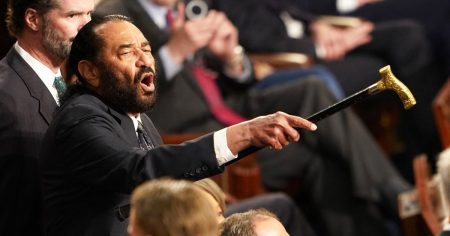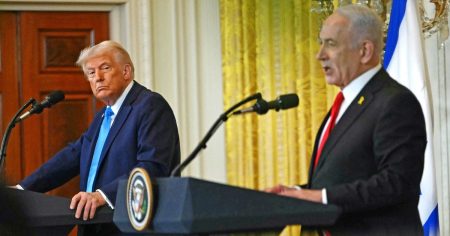President Donald Trump made headlines on Monday by issuing a full pardon to former Illinois Governor Rod Blagojevich, a move that sparked widespread debate and controversy. Blagojevich, a Democrat during his time in office, had served eight years of a 14-year prison sentence for his role in a high-profile corruption scandal. His case drew national attention after he was convicted of attempting to sell Barack Obama’s vacant Senate seat following Obama’s historic presidential victory in 2008. During a press conference in the Oval Office, Trump expressed his support for Blagojevich, stating, “It’s my pleasure,” and describing him as “a very fine person” who was wrongly targeted. The pardon marked the latest chapter in a saga that has intertwined politics, corruption, and reality television.
Blagojevich’s troubles began over a decade ago when he was accused of engaging in a series of unethical and illegal activities while in office. In 2009, he was convicted of lying to an FBI agent, though jurors were initially deadlocked on other charges. Two years later, during a retrial, he was found guilty on all counts after prosecutors presented damning evidence, including recorded conversations, that revealed his attempts to exchange political favors for personal gain. These recordings showed Blagojevich discussing the possibility of selling Obama’s Senate seat to the highest bidder, as well as other acts of corruption, such as extorting campaign contributions from a children’s hospital executive and withholding support for a horse-racing industry bill until he received political donations. His downfall led to his impeachment and removal from office in January 2009, after he refused to step down following his arrest the previous year.
Despite his legal woes, Blagojevich managed to remain in the public eye through an unexpected platform: reality television. In 2010, he became a contestant on Donald Trump’s reality show The Celebrity Apprentice, where he competed for charity while his legal battles continued. This peculiar intersection of politics and entertainment has been cited by some as a factor in Trump’s eventual decision to intervene in Blagojevich’s case. The two men apparently developed a rapport, with Blagojevich’s longtime attorney, Shelly Sorosky, describing their relationship as “good and friendly.” Sorosky also hinted that the possibility of a pardon had been discussed for some time, suggesting that Trump’s decision was not made on a whim.
The news of Blagojevich’s pardon was met with sharp criticism from many in Illinois, where his name had become synonymous with corruption. For years, Blagojevich’s case served as a symbol of the state’s long history of political misconduct, with four of the last eight governors ending up in federal prison for corruption-related offenses. In 2019, Illinois’ Republican congressional delegation sent a letter to Trump urging him not to commute Blagojevich’s sentence, arguing that doing so would send the wrong message about accountability in government. They wrote, “It’s important that we take a strong stand against pay-to-play politics… Commuting the sentence of Rod Blagojevich, who has a clear and documented record of egregious corruption, sets a dangerous precedent and goes against the trust voters place in elected officials.” Despite these warnings, Trump went ahead with the commutation in 2020 and now has taken the additional step of issuing a full pardon.
Blagojevich’s reaction to the pardon was not immediately known, as he could not be reached for comment on Monday. However, his lawyer expressed gratitude on his behalf, calling the decision a long-awaited relief. The pardon also raised questions about Blagojevich’s future and whether he would attempt to return to public life. While some speculated about a potential comeback, others argued that his reputation as a corrupt politician would make such a move unlikely. Regardless, the pardon has reignited discussions about Trump’s approach to justice and his tendency to use his clemency powers in cases that resonate with his political base or personal interests.
The pardon of Rod Blagojevich is a complex and multifaceted issue that touches on themes of power, corruption, and the blurred lines between politics and entertainment. While some view Trump’s decision as an act of mercy for a man who has already served significant time, others see it as a troubling disregard for the rule of law and a slap in the face to the citizens of Illinois who were harmed by Blagojevich’s actions. As the nation continues to grapple with issues of accountability and trust in government, the legacy of this case—and the implications of Trump’s pardon—will likely be debated for years to come. In the end, the story of Rod Blagojevich serves as a stark reminder of the dangers of unchecked ambition and the enduring challenges of combating corruption in public office.


